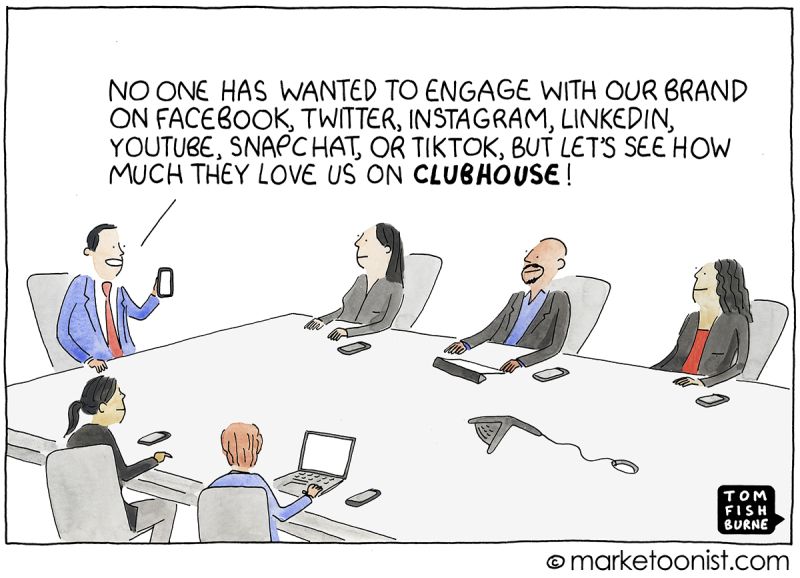How do you escape FOMO—Fear Of Missing Out?
The other day, Anne signed up for my mailing list.
After leaving her email address, she was taken to a landing page where I asked her to share her biggest digital marketing and communications challenge. Anne’s biggest challenge was to keep up with digital trends in today’s online landscape.
Anne wrote:
“Must we become fucking experts on ‘Pokémon Marketing’ now?”
I feel you, Anne. She shares her frustration with hundreds of other readers who have answered that same question over the years.
How can one keep up in today’s wired world?
Here we go:
The Digital Space is Too Big: Keeping Up Is Futile
You could pick a channel like Youtube and immerse yourself only to realise that you must choose a more precise focus. Now, you might try getting a handle on Let’s Play walkthroughs, only to learn that you must dedicate yourself to a particular gaming genre.
Every time you scratch a new shiny digital surface, an even bigger online universe opens up. It’s not humanly possible to keep up with all the new digital trends emerging all around us.
As a public relations professional who’s been into digital PR for decades, I would suggest another approach. As I see it, it’ll be enough to keep up with those trends that will affect your business.
The trick, of course, is to spot those digital trends that truly matter to you and your brand.
How Artificial Scarcity Works
The Principle of Scarcity
The principle of scarcity is well-established in scientific literature. If something seems scarce, we anticipate our possible regret of failing to acquire the resource in time:
“In 2 experiments, a total of 200 female undergraduates rated the value and attractiveness of cookies that were either in abundant supply or scarce supply. […] Results indicate that (a) cookies in scarce supply were rated as more desirable than cookies in abundant supply; (b) cookies were rated as more valuable when their supply changed from abundant to scarce than when they were constantly scarce; and © cookies scarce because of high demand were rated higher than cookies that were scarce because of an accident.“
Source: Journal of Personality and Social Psychology 1Worchel, S., Lee, J., & Adewole, A. (1975). Effects of supply and demand on ratings of object value. Journal of Personality and Social Psychology, 32(5), 906 – 914.
We are programmed for survival and will, therefore, a) overvalue items and services that are scarce and b) undervalue those plentifully. 2Silfwer, J. (2016, August 4). FOMO & Digital Trends: You Don’t Have To Catch Them All. Doctor Spin | The PR Blog. https://doctorspin.net/fomo/
Creating artificial scarcity (by limiting availability) is a powerful PR strategy, but to avoid backfiring, the PR professional must refrain from framing the offer using untrue statements.
Learn more: The Power of Artificial Scarcity
The Science Behind FOMO
FOMO is typically described as a pervasive apprehension that others might be having rewarding experiences from which one is absent and is characterized by the desire to stay continually connected with what others are doing.
FOMO is often associated with feelings of anxiety and dissatisfaction and has been linked to negative outcomes such as lower mood and life satisfaction, poor sleep quality, and problematic use of social media.
There is a growing body of scientific literature exploring the concept of FOMO, or Fear of Missing Out.
Here are some key studies:
These studies suggest that FOMO is a real psychological phenomenon that can contribute to various issues, particularly in relation to mental health and technology use.
As social media plays a significant role in our lives, understanding and addressing FOMO becomes increasingly important.
The Pointless Pokestop
The other day in Stockholm, I walked past a local store for office supplies. There was a Pokestop right outside their storefront, as circumstance would have it. 3A Pokestop is a virtual in-game feature of the popular mobile game Pokémon Go, a game that blends with real-world locations.
In an attempt to grab this marketing opportunity, they got into Pokémon Go and added lures to the Pokestop — which they advertised on a written sign in one of their window displays. 4Again, for those not up to speed with all things Niantic, a lure is a virtual item and part of the game. By placing your lure at a Pokestop, you attract virtual creatures for other players to catch. … Continue reading
I got curious and found a café across the street. In an hour, two Pokémon Go players, less than 15 years old, stopped by the Pokestop outside the storefront, but none cared about entering the office supply store.
Boldly, I assumed that Pokémon Go players generally aren’t in the market to stock up on printer ink.
It got me thinking.
I checked the office supplier’s website, which wasn’t optimised for mobile. The website couldn’t tell me whether or not they had certain products in stock or not. Wouldn’t their marketing efforts have been better spent jacking up their site?
Let’s imagine that the website has 500 unique hits every day. What if the office supplier had aimed their “creative ambitions” at those 500 daily web visitors — instead of trying to convert two young Pokémon Go players?
The FOMO Filter
A part of me celebrates the office supplier for taking a chance to try something new. “Fortune favours the bold,” and so on.
Still, something must be said about taking unnecessary gambles when there’s plenty of other low-hanging fruit. Marketing and communications are fiercely competitive simply because we compete for one of the world’s rare and most valuable natural resources; people’s attention.

The question we should be asking ourselves:
The FOMO filter: Before experimenting with exciting online trends, ask yourself: have you exhausted all existing PR- and marketing opportunities?
Stay Focused, Stay Sharp
Businesses can’t afford to jump on every online bandwagon (Clubhouse, anyone? Or perhaps — the Metaverse?) that seems to be in vogue.
It turns us into FOMO-suffering neophiliacs. We fall prey to our strategies of manufacturing artificial scarcity.
The office supply store’s marketing team should be excited about inbound marketing, Google AdWords, customer loyalty, market research, online conversion, search engine optimisation, and e‑commerce — instead of Pokémon Go.
So, Anne and everyone else struggling to keep up, you don’t have to catch them all!
Just. Stay. Business. Relevant.

THANKS FOR READING.
Need PR help? Hire me here.

Update: Since someone asked:

PR Resource: The Anatomy of Attention
The Anatomy of Attention
Attention is an essential component of public relations:
An organisation, starved of attention, trust, and loyalty, is compelled to wage a perpetual struggle for its continued existence.
And it’s not just organisations. We all seem to crave attention in some form or another:
“People want to be loved; failing that admired; failing that feared; failing that hated and despised. They want to evoke some sort of sentiment. The soul shudders before oblivion and seeks connection at any price.”
— Hjalmar Söderberg (1869−1941), Swedish author
It’s fear of social isolation—and attention starvation.
“There’s only one thing in the world worse than being talked about, and that is not being talked about.”
— Oscar Wilde
Types of Attention
But what constitutes ‘attention’?
“Attention is a complex, real neural architecture (‘RNA’) model that integrates various cognitive models and brain centers to perform tasks like visual search.”
Source: Trends in cognitive sciences 5Shipp, S. (2004). The brain circuitry of attention. Trends in Cognitive Sciences, 8, 223 – 230. https://doi.org/10.1016/j.tics.2004.03.004
Each of the below terms refers to a specific aspect or type of attention (“mental bandwidth”), a complex cognitive process. 6Schweizer, K., Moosbrugger, H., & Goldhammer, F. (2005). The structure of the relationship between attention and intelligence. Intelligence, 33(6), 589 – 611. … Continue reading
Let’s explore different types of attention:
Each type of attention is likely to play a role in how we interact with and process information from our environment, and understanding these different aspects is key in fields like psychology, neuroscience, and education.
Learn more: The Anatomy of Attention
Annotations
| 1 | Worchel, S., Lee, J., & Adewole, A. (1975). Effects of supply and demand on ratings of object value. Journal of Personality and Social Psychology, 32(5), 906 – 914. |
|---|---|
| 2 | Silfwer, J. (2016, August 4). FOMO & Digital Trends: You Don’t Have To Catch Them All. Doctor Spin | The PR Blog. https://doctorspin.net/fomo/ |
| 3 | A Pokestop is a virtual in-game feature of the popular mobile game Pokémon Go, a game that blends with real-world locations. |
| 4 | Again, for those not up to speed with all things Niantic, a lure is a virtual item and part of the game. By placing your lure at a Pokestop, you attract virtual creatures for other players to catch. But I assure you that most businesses can thrive without this specific knowledge. |
| 5 | Shipp, S. (2004). The brain circuitry of attention. Trends in Cognitive Sciences, 8, 223 – 230. https://doi.org/10.1016/j.tics.2004.03.004 |
| 6 | Schweizer, K., Moosbrugger, H., & Goldhammer, F. (2005). The structure of the relationship between attention and intelligence. Intelligence, 33(6), 589 – 611. https://doi.org/10.1016/j.intell.2005.07.001 |


